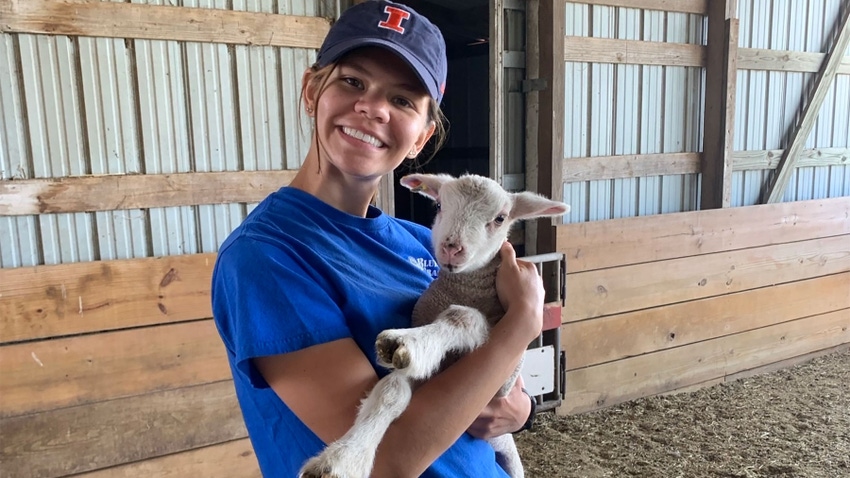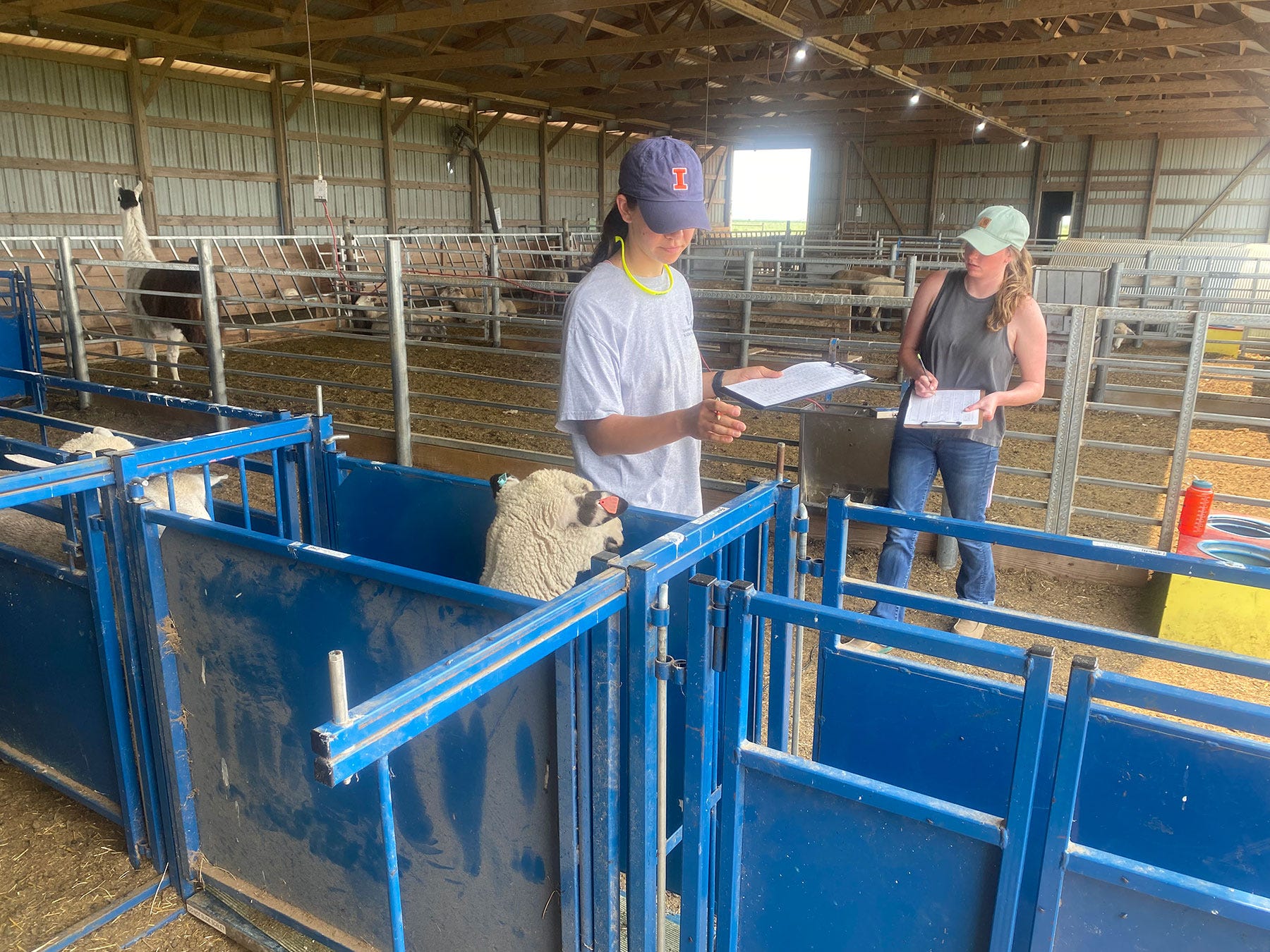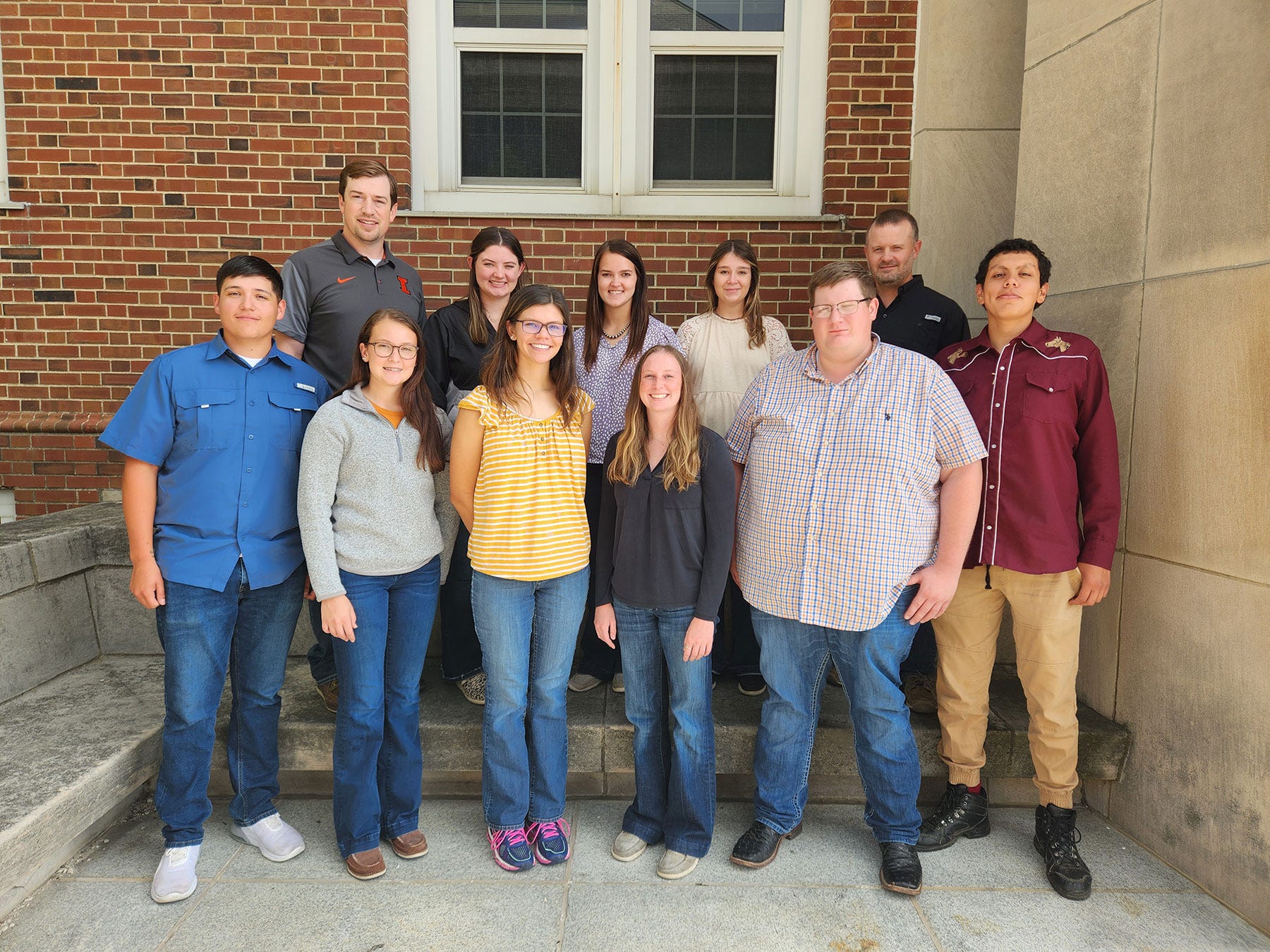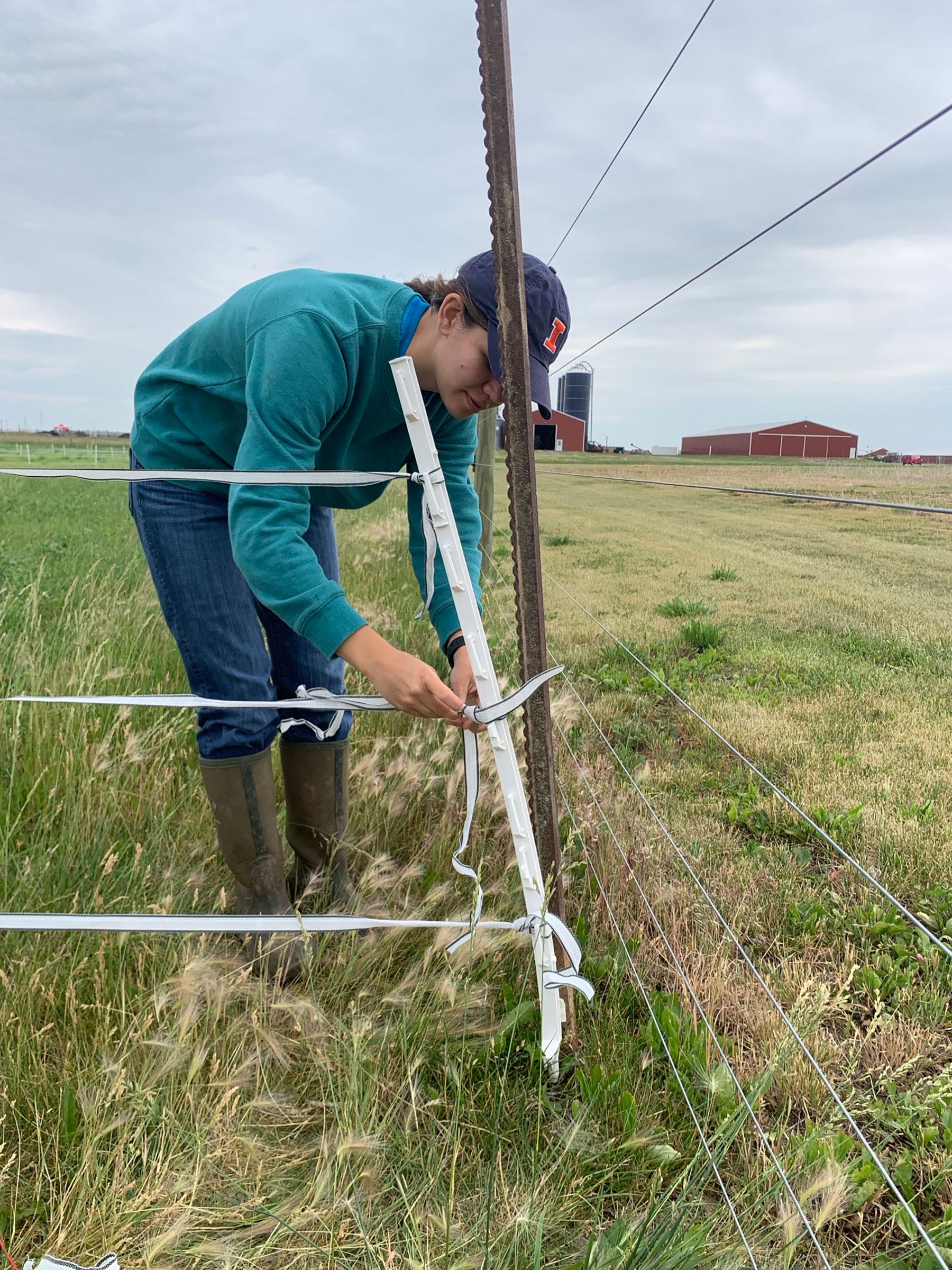April 24, 2024

At a Glance
- The number of University of Illinois animal sciences students from working farms continues to decrease.
- A new USDA-funded research program is designed to put students with a beef interest on the farm.
- I-BELIEF is a 10-week summer experience for students to work with cattle and conduct research.
by Maddie Heidtke
A quick survey of animal sciences students at the University of Illinois reveals a dramatic change over the past 30 years: Fewer of them are farm kids than ever before. That means those students have little to no practical farm experience.
But for those interested in the beef sector and other ruminant animals, an intensive yearlong, hands-on research program is aiming to change that.
The Illinois Beef Experiential Learning and Industry Exposure Fellowship is a 10-week summer experience where students (called “fellows”) work hands-on with beef cattle as they develop and execute a research project to present at the annual Midwest Animal Science Meeting.
I-BELIEF was developed by U of I beef researchers Josh McCann and Dan Shike. McCann calls it an “elite, one-of-a-kind” experience.
“The University of Illinois has been committed to providing experiences in undergraduate research over the summer for a long time. And a USDA grant gave us the funding and opportunity to create a more comprehensive, well-rounded program,” McCann says.
How I-BELIEF program works
Fellows in the I-BELIEF program begin their experience with a three-day program launch event, where they learn more about the beef industry, complete necessary research trainings, participate in professional development activities and get to know the other students in their cohort. They then begin the 10-week summer experience, where they work on a beef farm and develop a research project or begin working with Illinois Extension.
Research projects can address various issues pertaining to beef cattle, such as nutrition, reproduction and management. Students working with Illinois Extension professionals learn every aspect of being an Extension educator. They go on farm visits, meet with producers and create marketing materials to inform both producers and consumers.
The summer ends with a capstone event, allowing students to reflect on their experience and consider what future career might be the best fit, and what the next steps are to get there. In the fall, the fellows reconnect with McCann and Shike to develop their abstracts to submit for the Midwest Animal Science Meeting the following spring. They also begin creating their presentation materials for the oral or poster presentation competition. The following March, the fellows present their findings, culminating their experience.
“We want to prepare students for graduate school, which is one of the hallmarks of the program,” McCann says. “Students really need to be able to see the research process from the beginning, all the way to the end.”

TEAMWORK: Emma Prybylski and Alyssa Brown worked together last summer at the Illinois State University farm, where they mixed diets and fed cattle and sheep, and then conducted their research. Neither student grew up on a farm.
Measuring success
Funded by USDA, I-BELIEF is geared toward economically disadvantaged, underrepresented and female students. Additionally, it gives students the opportunity to address existing problems in the beef industry.
The I-BELIEF program started in 2018 and has grown significantly. When the program was awarded its first USDA grant, it allowed for a five-student cohort for four years. After that four-year period was up, the program was awarded a second grant, allowing it to double in size. Now, the program has 10 fellows annually.
Eight fellows are placed at farms at Illinois State University, Western Illinois University and the University of Illinois Urbana-Champaign, where they work with on-site faculty mentors to complete their research-based experience. Two of the fellows work with Illinois Extension to gain more exposure to what Extension does to support Illinois beef producers.
Besides growing in numbers, the program’s reach has broadened, too. Now, any college student pursuing an agricultural degree, whether it be at an Illinois community college or four-year university, is encouraged to apply for the program. While many agricultural degrees are generally narrow in scope, I-BELIEF gives students the opportunity to dive into specialized disciplines within the beef industry.
“When the program grew, we knew we needed to grow our recruiting base,” McCann says.

COHORT: Members of the 2023-24 I-BELIEF cohort include (front, from left) Andres Olalde, McKenna Merritt, Emma Prybylski, Alyssa Brown, Zach Zwiebel and Fernando Delgado Jr. In back are (from left) U of I beef researcher Josh McCann, Rachel Stone, Grace Rincker, Meg Fowler and U of I beef researcher Dan Shike.
The I-BELIEF program continues to cultivate the next generation of leaders in the beef industry, with many students pursuing advanced degrees. McCann estimates that at least 75% of program participants move on to graduate school, and he believes that’s because the program prepares them to succeed in rigorous research environments.
I-BELIEF’s impact has the potential to reach more than its participants. With the program investing in Illinois students pursuing agricultural careers, it is also investing in Illinois’ ag industry and rural communities.
“Our beef industry does a great job of supporting rural communities,” McCann says. “So, when we’re supporting [people getting ready to enter] the workforce, in these agricultural careers, we’re supporting the health and the vibrancy of our rural communities.”
Emma on the farm
Emma Prybylski, a senior at the U of I, is a member of the 2023-24 I-BELIEF cohort. A Washington state native who did not grow up on a farm, Prybylski has immersed herself in animal research at U of I to prepare herself for veterinary school. She started working in the ruminant nutrition lab under McCann her sophomore year, so participating in the I-BELIEF program was another opportunity for her to work in ruminant research.
“Since I do enjoy working with beef cattle, it just seemed like the perfect internship opportunity for me,” Prybylski says.
Last summer, Prybylski was placed at the Illinois State University farm with another U of I student, Alyssa Brown. Like Prybylski, Brown did not grow up on a farm. Together, they worked on the farm to mix diets and feed cattle, all while conducting their own research experiments. Every day, they’d get to the farm early to feed the university’s cattle and sheep herds before dedicating the rest of the day to gathering data for their projects.
For her project, Prybylski worked with Jennifer Earing at Illinois State to investigate the impacts of two different forage mixtures on ewe growth and performance. Using a rotational grazing system, she rotated the ewes on both forage mixtures through different paddocks when the forage height reached 3 to 4 centimeters, careful to maintain forage integrity. Throughout the summer, she gathered both forage and ewe-specific data to measure the impacts of both mixtures.

MENDING FENCE: Emma Prybylski managed both sheep and cattle during her summer I-BELIEF experience, which included moving sheep between intensive grazing paddocks — and managing fencing.
In March, Prybylski traveled to the annual Midwest Animal Science Meeting in Madison, Wis., where she and other I-BELIEF students shared their findings with animal science professionals and students.
“I had such a great time at Midwest, and it was great to see the entire cohort after a few months of not seeing them. Being able to present my hard work over the past year was a relief, and I was very grateful to have been allowed to attend as an undergraduate student,” Prybylski says.
The I-BELIEF program allowed Prybylski to dive deeper into ruminant nutrition, reaffirming her interest in the discipline. Upon graduating in May with her bachelor’s degree, Prybylski hopes to continue her education at the U of I College of Veterinary Medicine in the Veterinary Medical Scholars Program, where she would receive both a DVM and a Ph.D. In the future, she’d like to work with college students interested in research and give them opportunities to experience the research process.
Heidtke, an agricultural communications graduate student at the University of Illinois Urbana-Champaign, is from Woodstock, Ill.
You May Also Like




